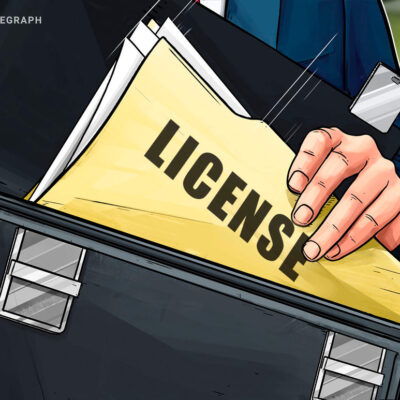With regulated decentralized finance (reg-DeFi) becoming a topic of discussion within and outside the crypto space, the World Economic Forum (WEF) has published a policy toolkit on DeFi.
According to a release issued on Tuesday, the toolkit seeks to provide useful guidance for regulators and government policy-makers concerning DeFi regulations.
The WEF reportedly partnered with the Blockchain and Digital Asset Project at the Wharton School of the University of Pennsylvania. DeFi entrepreneurs, legal experts and financial regulators also collaborated with the WEF to develop the toolkit.
Financial regulators involved in developing the policy framework include representatives from agencies in the United States as well as people involved in crafting Europe’s planned Markets in Crypto Assets (MiCA) regulations.
As part of the announcement, WEF stated that its toolkit offers a foundational basis for examining critical factors concerning DeFi regulations. With national and intergovernmental bodies seeking to craft and enforce DeFi regulations, some stakeholders say smaller startups in the emerging industry might become disenfranchised.
Indeed, the European Commission’s work on the MiCA regulatory framework has drawn significant concerns from industry stakeholders. Back in March, the International Association for Trusted Blockchain Applications (INATBA) argued that some provisions of the proposed regulations would put crypto startups at a disadvantage compared to legacy finance incumbents.
According to Sheila Warren, deputy head of WEF’s Centre for the Fourth Industrial Revolution, such concerns are captured in the toolkit. “This is something we spend a lot of time thinking about, both with respect to supporting fledgling companies driving innovation but also with respect to what it means in terms of access,†Warren told Cointelegraph, adding:
“Part of the promise of DeFi is a more democratized path to engaging with financial services, whether lending, insurance, or other. The cost of compliance can in some cases mean that certain participants are discouraged from entering the market, which both stifles innovation and replicates the existing power differential in the current system.â€
Warren also touched on the need to balance decentralization and privacy concerns one hand with regulations aimed at combating illicit activities like money laundering. According to Warren, regulation should not be seen as an end goal but rather adopting the incentive and reward mechanism common in decentralized network consensus to combat the activities of bad actors.
As already stated by MakerDAO co-founder Rune Christensen, regulatory clarity is necessary for DeFi to interact with real-world assets. These regulations will likely cover investor protection and Anti-Money Laundering concerns.
For Warren, consumer protection, taxation and AML efforts should not erode decentralization, stating:
“I am passionate in my view that decentralization is critically important to the DeFi ecosystem — the most exciting opportunities in the DeFi ecosystem are tied to this aspect, especially when it comes to governance.â€
As of the time of writing, data from DappRadar shows the adjusted total value locked in the DeFi market at over $67 billion. Once a niche market space on the Ethereum network, DeFi is making a splash on other chains including the Binance Smart Chain.






